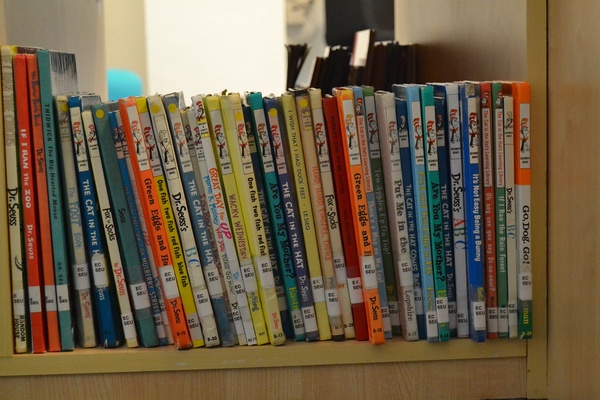Not So Kid-Friendly: Loudoun Joins in on Addressing the Racism in Dr. Seuss Books

Dr. Seuss Enterprises announced that they would stop the publication of several of Dr. Seuss’s books due to insensitive and racist imagery, prompting LCPS to comment on the issue.
“Read Across America Day” is a holiday created by the National Education Association and celebrated on March 2, which deliberately coincides with the birthday of famed author Theodor Seuss Geisel, or Dr. Seuss. He is best known for his acclaimed children’s books such as The Cat in the Hat and Green Eggs and Ham, but some of his other books are under fire for racist imagery and undertones. In response, Dr. Seuss Enterprises announced on the author’s birthday that six of his books would cease publication.
The company said that “These books portray people in ways that are hurtful and wrong… Ceasing sales of these books is only part of our commitment and our broader plan to ensure Dr. Seuss Enterprises’ catalog represents and supports all communities and families” [Associated Press]. Two of the affected books are And to Think That I Saw It on Mulberry Street and If I Ran the Zoo.
In the original version of “Mulberry Street”, an illustration depicts an Asian man with yellow skin, slanted eyes, a conical hat, and eating from a bowl with chopsticks. The image is accompanied by the caption “a Chinaman who eats with sticks” [NBC News]. The yellow skin was edited out in 1978, after more than 40 years from when it was originally published, but the slanted eyes remained. Additionally, If I Ran the Zoo has imagery of two men from Africa who are shirtless, shoeless, and wearing grass skirts while holding exotic animals.
The book also includes an illustration of three Asian men carrying a bamboo cage on their head, and a white boy holding a gun sitting atop, next to the caption: “I’ll hunt in the mountains of Zomba-ma-Tant / With helpers who all wear their eyes at a slant” [NBC News].
“No doubt, the long-standing prevalence of racist imagery within the larger widespread anti-Asian sentiment in the U.S. added to the delayed response to Dr. Seuss’ racism… especially when buffered in Seuss’ rhyming verse, his racist depictions, already normalized in U.S. society, are put forth in jest as if they are innocuous,” said Karen Ishizuka, chief curator of the Japanese American National Museum [NBC News]. Dr. Seuss’s racism was not exclusive towards his children’s books, however, as he also wrote more than 400 political cartoons for a New York newspaper. One infamous cartoon depicts characters with slanted eyes going to pick up TNT from a store called “Honorable 5th Column”, with the title “Waiting for the Signal From Home”. The cartoon was published just two months after the bombing of Pearl Harbor, and only six days before President Franklin D. Roosevelt’s issuing of Executive Order 9066, which incarcerated over 100,000 people of Japanese descent [NBC News].
In a statement on Feb. 27, Loudoun County Public Schools said: “We continue to encourage our young readers to read all types of books that are inclusive, diverse, and reflective of our student community, not simply celebrate Dr. Seuss…[his] books have not been banned… However, Dr. Seuss and his books are no longer the emphasis of Read Across America Day in Loudoun County Public Schools” [Loudoun Times-Mirror]. Some conservative news outlets, like The Daily Wire, claimed that the county “canceled” a beloved author. In response, Wayde Byard, LCPS Public Information Officer, said the National Education Association have also associated the day less and less with Dr. Seuss.
The information that children consume through media can have a profound effect on their development. Research from the Association for Psychological Science shows that children form racial biases as early as three years of age, and that they display levels of racial bias that are comparable to adults at 10 years old [NBC News]. Ann Neely, professor of children’s literature at Vanderbilt University, said, “I absolutely think [stopping the publication of some of Seuss’s books] is a commitment to a better, more just, and inclusive world of children’s literature… We have so many outstanding books for children today; there is no need to continue to publish books that are now inappropriate… Children need to see themselves, and others who may be different from them, in an accurate and positive way” [NBC News].

